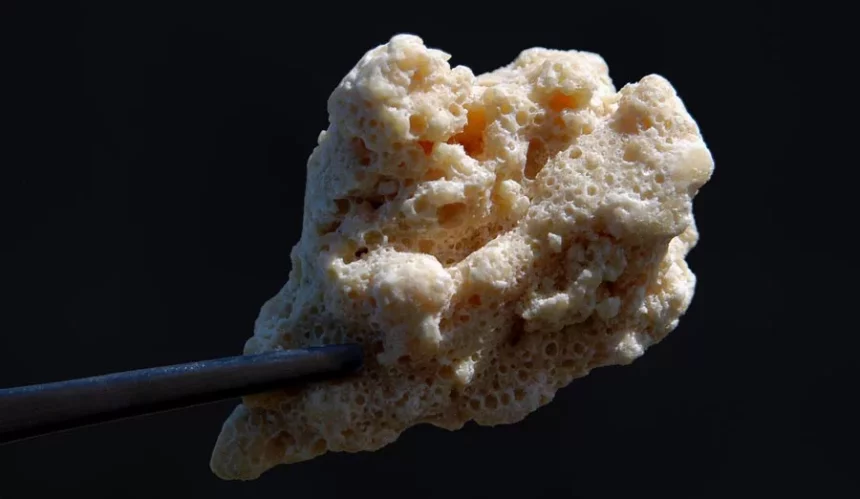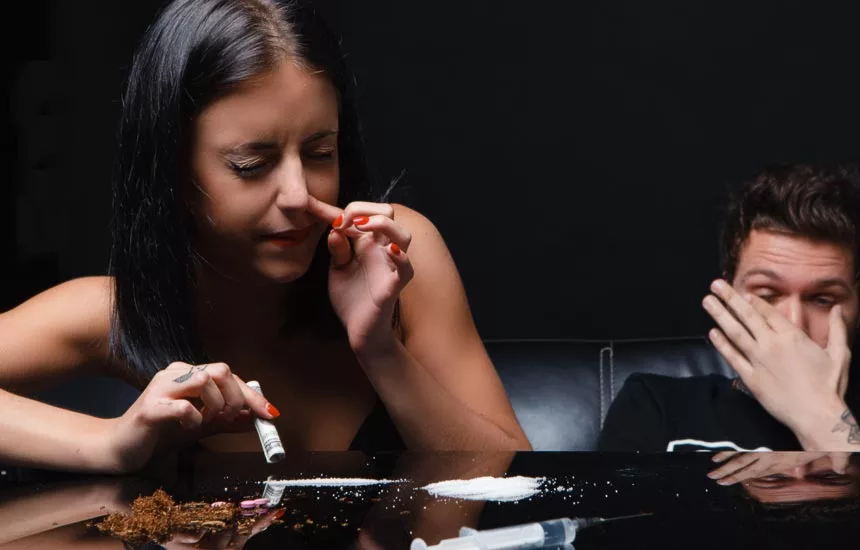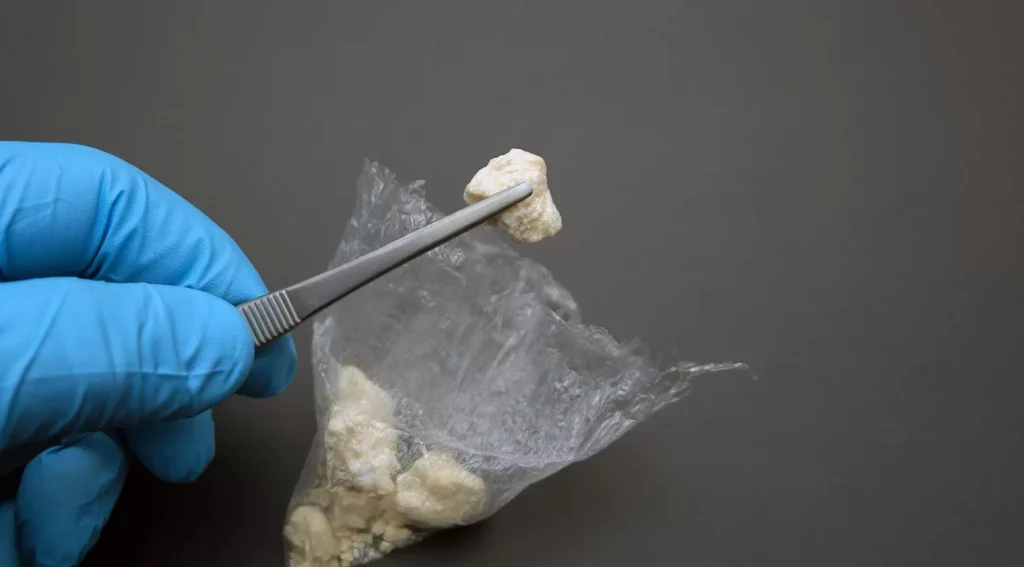What Is Crack Addiction?
Table of Contents
An addiction is a complex relapsing disorder in which an individual is unable to properly inhibit their substance use. Individuals struggling with addiction will seek substance use despite the many negative consequences that come along with it.
Crack addiction, much like any other addiction comes with withdrawal. A person becomes addicted to a substance after their body has become accustomed to having the drug on a daily basis. This is especially true with crack. The signs of crack withdrawal can be discreet in some cases but are often noticeable if you know what to look for.
Oftentimes, an individual will not quit using because they are afraid of going through the withdrawal phase or have relapsed during the withdrawal phase. This phase is extremely difficult for individuals struggling with crack abuse as the process is long, painful, and mentally taxing.
Although this is the case, it can be treated. After cleansing an individual’s body of crack cocaine, an individual will still be left with withdrawals from stopping use. Crack treatment can help individuals recover and eventually return to their lives. Keep reading to get the details on effective treatment and help!
What Is Crack Cocaine?

Crack is a solid form of cocaine that is smoked and an addictive stimulant drug. It is much stronger and more concentrated than powder cocaine to the point that once a person begins using crack they can immediately become addicted. This effect does vary from person to person, but it does produce addictive effects for every individual who ingests it.
Physical addiction is the same across all individuals. After the very first use of crack physical addiction and withdrawal set in. The body immediately begins to crave more of the drug and an individual will start to experience symptoms as soon as the high wears off.
Who Is At Risk Of Crack Abuse?
Anyone can become addicted to crack. Due to its high potential for abuse and addictive qualities, individuals can quickly become addicted to this substance and struggle with the effects of crack.
This being said, there are many individuals who are at an increased risk of becoming addicted to substances which can include:
- Mental health disorders
- Family drug history of addiction
- Constant high stress environments
- Traumatic experiences
- Biological makeup
Individuals with mental health disorders and traumatic experiences often have their own coping mechanisms to deal with or manage their experience. These methods can be beneficial however, receiving treatment, such as psychological or behavioral therapy, can assist an individual with properly managing these experiences and avoid the risk of substance abuse.
Drug Abuse Withdrawal Symptoms
Stopping long-term use of any substance will lead to an individual experiencing some withdrawal symptoms. Some substances, such as crack, can have immediate withdrawals that can be intense during this period.
There is a syndrome to help define these symptoms which are called a post-acute-withdrawal syndrome. Post-Acute-Withdrawal Syndrome, or PAWS, is a number of symptoms within an individual after stopping drug use.
Post-acute refers to the time after receiving treatment for a specific issue. In other words, post-acute withdrawal symptoms are the symptoms that come after removing a substance from an individual’s body.
What Are The Symptoms Of PAWS?
The withdrawal symptoms that come with PAWS are psychological symptoms which include:
- Cognitive dysfunction
- Irritability
- Increased anxiety
- Depression
- Cravings
- Sensitivity to stress
- Difficulty maintaining relationships
- Apathy
- Difficulties with sleep
- Obsessive-compulsive behaviors
Crack Withdrawal Symptoms

Withdrawal symptoms are the biggest factor that leads individuals to relapse. They are immensely difficult to manage, especially with how addictive crack is. Crack cocaine withdrawal symptoms cause individuals to suffer through very uncomfortable experiences which often force them to return to using.
Crack has physical and psychological symptoms that an individual must process and manage. The crack cocaine withdrawal timeline refers mainly to psychological symptoms. Physical crack withdrawal symptoms typically last up to a week.
Psychological crack withdrawal symptoms will last anywhere from a week to up to six months. This all depends on a variety of factors including how much crack was used, the length of time crack was used, the biological makeup of an individual, etc.
Individuals that used more amounts of crack more often will experience more severe withdrawal symptoms for a much longer period of time than individuals that used less amounts of crack less often.
Physical Withdrawal Symptoms Of Crack
- Bronchitis
- Lung cancer
- Extreme weight loss
- Black phlegm in the lungs
- Difficulty sleeping
- Seizures
- Body tremors
- Extreme fatigue
- Heart Attack
These physical symptoms last on average about a week. However, in some cases, these symptoms have been known to last for much longer periods of time; anywhere from 1-3 months.
There is no known way to determine how long withdrawal symptoms will last for each person. Every individual’s addiction is different and therefore an individual’s withdrawal experience is different as well.
Psychological Withdrawal Symptoms Of Crack
- Paranoia
- Auditory hallucinations
- Impulsivity
- Hyper sexuality
- Fear of impending doom/death
- Anxiety
- Nightmares
- Difficulty concentrating
- Agitation
- Intense cravings
- Mood changes
- Lack of motivation
- Depression
- Anger/emotional outbursts
- Suicidal thoughts
Mental withdrawal symptoms last much longer than physical withdrawal symptoms. The mental withdrawal process can last for weeks to months and in some cases longer. Drug cravings are the most dangerous withdrawal symptoms.
With the lack of understanding surrounding mental health and the unseeable effects of these mental conditions, it is difficult for an individual to properly manage their withdrawals from crack.
Crack withdrawal is a dangerous process for all individuals, no matter how long they were using crack cocaine. Individuals struggling with crack cocaine addiction are encouraged to go to a detox center to safely process withdrawals from cocaine. Keep reading to find out more about this process.
Common forms of detox treatment can include inpatient detox centers, partial hospitalization programs, and pharmacological treatment. The most widely known form of detox is quitting cold turkey however, because of the dangers and severity of the withdrawal symptoms this form of detox is highly discouraged regarding crack cocaine.
Individuals trying to quit cocaine without assistance are more likely to relapse or even face overdose. In their intense cravings alongside all these other mental conditions, individuals return to crack abuse to soothe their experience.
The Details on Cravings for Substances
Once a person stops using crack they will experience an extremely intense desire and the need for more of the drug. These are known as cravings. Cravings for crack are extremely dangerous.
If a person is unable to control their cravings they will most likely end up using crack again only to start the cycle of addiction all over again only with the risk of overdose becoming greater.
What Are Psychological Cravings?
- Obsessive thoughts
- Vivid dreams about using crack
- Strong desire to do anything to get crack
- Paranoia (such as people around them have crack and are keeping it from them for their own purpose of causing an individual to suffer)
- Inability to focus on anything else
In order to combat these cravings for long-term success, multiple programs and therapies are available to help crack cocaine addicts learn how to control and overcome these cravings.
Treatment For Crack Withdrawals
Through addiction treatment, an individual will go through the process of targeting these cravings, learning how to deal with them in a constructive manner that doesn’t result in relapse or further use of crack.
Such therapies and treatments include cognitive behavior therapy, dialectical behavior therapy, relapse prevention, and others. In addition to these therapies addiction treatment centers also offer numerous different programs and activities to help individuals struggling with crack addiction get back into the swing of life without the aid of drugs.
Such activities include volunteer work, equine therapy, sports, doing things outdoors, yoga/exercise, and others. Also, individuals suffering from intense crack cocaine cravings can also receive help from medications. Medications have not been recognized by the FDA as a solid alternative to combat crack cravings.
However, the use of some medications has been known to help reduce the onset of cravings and block the drug-induced euphoria brought on by the use of drugs. Such medications are baclofen, modafinil, and disulfiram. Even with the aid of medications, addiction treatment is still needed for long-term sobriety.
Crack cocaine still remains a prominent and extremely dangerous drug in our society today. When a person decides to experiment with crack cocaine, even once, they are essentially opening themselves up to crack addiction and a future full of pain and anguish.
Through withdrawal, detox, and addiction treatment, individuals struggling with crack addiction will be able to find their way without the use of drugs. But this is only possible when each individual person makes the decision to quit for themselves.
Medical Detox For Crack
Medical detox is a medically supervised detox program to help individuals through severe withdrawals. Individuals undergoing this treatment process are required to live onsite to receive treatment.
Individuals are provided with 24 hour medical assistance as needed. This is to best protect and support an individual through a difficult experience and avoid potentially dangerous or life-threatening situations.
During this process, an individual may be provided with certain medications to better help their body return to its natural functions without the substance. Crack withdrawal symptoms have many psychological effects which bring immense suffering to an individual.
The primary focus of this treatment is to remove a substance from an individual’s body and does not address the persisting issues of PAWS. It is important for an individual struggling with crack addiction to receive specific stimulant addiction treatment after detoxification.
Partial Hospitalization Programs Or PHPs

A partial hospitalization program is a detoxification program to help individuals through moderate to mild withdrawals. This is a specific type of detoxification called ambulatory detoxification.
Ambulatory detoxification provides licensed medical professionals to monitor individuals undergoing the treatment program and assist them through their experience.
PHPs are a form of intensive outpatient treatment in which treatment provides a similar level of intensity as inpatient treatment yet allows for an individual to return home after treatment finishes for the day.
Inpatient Treatment
Inpatient treatment is a form of residential treatment and is more intense than other forms of treatment. Individuals in this treatment process are required to live onsite at a treatment facility to receive treatment.
This option is beneficial for individuals that wish to be removed from their environment and into a safer, more secure location. A treatment center will also provide an individual with much-needed stability to properly recover and retain recovery.
Outpatient Treatment
Outpatient treatment can vary in its level of intensity and is usually utilized to assist individuals through mild to moderate recovery or reinforce treatment in individuals after long term care.
This treatment option may be beneficial to individuals that want treatment with outside responsibilities such as work or school. This also provides a better financial option for individuals struggling financially however, individuals struggling with intense withdrawals may benefit more from inpatient treatment.
Finding Crack Withdrawal Treatment Near Me
Experiencing crack withdrawals can be overwhelming, especially when trying to manage other aspects of life. Here at Find Addiction Rehabs, we can help you find the help you need to recover from crack!
Whether finding a treatment center in your location, or connecting you with recovery tools and resources, our hotline is available 24/7 to make sure you can get the help you need, anytime you need it.
Crack withdrawals are very intense and can lead to relapse within individuals. Call us today and we can help you transition into the proper treatment center you need to get through the difficult withdrawals and into a healthy, sober new way of life!
Rachael Goldstein has been a freelance writer for more than 10 years, having written for Find Addiction Rehabs for the past two years. She specializes in writing about the law, mental health, psychology, and addiction. She is the owner and author of the website www.addicted-to-sobriety.com. Rachael is also a licensed attorney in the state of Pennsylvania.


